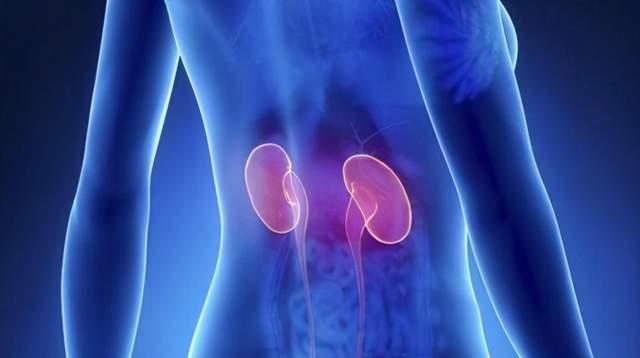Elevated creatinine means that the kidneys have lost more than 2/3 of them, and the remaining kidney function is very valuable.
At this time, patients with kidney failure have embarked on 2 paths: some patients have been very stable and even recovered, while others have deteriorated. Why the difference?
It depends on whether there is a factor of progress.

For example, most of these 5 types of renal failure have a good prognosis, and renal function rarely continues to progress:
1. Drug-induced kidney injury
Patients often have drug-induced kidney damage due to taking painkillers, antibiotics and other drugs, even if the creatinine is elevated, as long as the nephrotoxic drug is stopped in time, creatinine generally will not continue to rise.
2. Hypertensive nephropathy
The damage of blood pressure to the kidneys is more direct, and those who do not engage in yin are relying on that brute force to crush the kidneys. And the solution is not too difficult, now the invention of various types of antihypertensive drugs has been relatively mature, as long as the blood pressure control standard, even if the kidneys have been destroyed by high pressure for the most part, generally will not continue to progress.
3. Uric acid kidney disease
The concentration of uric acid in the blood is too high, and urate crystals can be formed in the kidneys, which can impair kidney function. After the low-purine diet and the control of uric acid-lowering drugs, uric acid is lowered, and kidney function generally does not develop.
4. Obstructive nephropathy
Obstructive nephropathy can form hydronephrosis and damage the kidneys. After the causes of obstruction such as stones and urethral stenosis are relieved, renal function usually does not progress.
5. Acute interstitial nephritis
Is a short period of time in the renal interstitial inflammation, mostly caused by adverse drug reactions, infection, if treated early, to relieve the cause, kidney function can be restored; even if kidney function can not be fully restored, most patients will not progress again.
The above nephropathy is caused by the damage of the tubule interstitial, and the glomeruli are not much of a problem, so the urine protein rarely leaks out of the glomeruli. Without urine protein, a major factor in progression, renal function generally does not progress, and timely treatment is reversible.
In kidney failure caused by the remaining diseases, the progression factor is often "haunting", which must be paid more attention to:
6. Glomerulonephritis
The cause of glomerulonephritis is immune disorders, immune disorders may be suppressed by immunosuppressants (including hormones), but under suppression, there is still an undercurrent, urine protein may come back; even some patients have not suppressed urine protein from beginning to end, resulting in continuous progression of kidney function.
7. Diabetic nephropathy
Diabetes has multiple pathways that hurt the kidneys, especially microinflammation, which continue to cause kidney damage. Even if the hypoglycemic level is met, there are still many other progression factors that attack the kidneys, and creatinine is easy to rise.
8. Lupus nephritis
Lupus is an autoimmune disease, immune B cells are abnormally active, shouting and shouting at their own bodies every day, implicating the kidneys. Immunosuppressants can usually be suppressed, but similar to the situation of glomerulonephritis, it is also an undercurrent that threatens kidney function.
9. Purpura nephritis
Purpura is a type of vasculitis. The kidneys are mainly blood vessels, and vasculitis causes nephritis. Purpura in children is easy to control, while adult purpura, whether it is immunological progression factors or genetic progression factors, is not easy to completely solve, once the kidney failure is caused, it is easy to continue to progress.
10. Severe renal failure
Any kidney disease, including the above 9 types, once it develops into severe chronic renal failure (the glomerular filtration rate falls below 30, and it does not recover within 3-6 months), then the bad cells of the kidney itself - myofibroblasts will continue to proliferate, becoming a factor of progression and threatening the remaining kidney function.
In short, a good prognosis for renal failure has 3 characteristics:
1. The cause is easy to resolve
2. Mainly tubular interstitial damage
3. Not developed to the late stage
Of course, even if these 3 conditions are not met, kidney friends should not be discouraged, and may not necessarily develop uremia, after all, the progression factor can be alleviated. What was most closely associated with renal outcomes was not the progression factor, but the therapeutic effect.